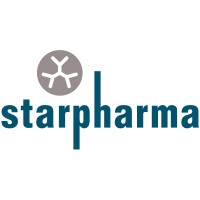Novel Biologics, Systemic Inflammation, and Metabolic Health
The metabolic medicine market is undergoing a transformative shift. Analysts project that this sector will exceed US$800 billion in value by 2050, driven by pharmaceutical breakthroughs, expanding clinical needs, and the rise of precision medicine. Employment growth across pharmaceutical R&D, biomanufacturing, and patient-focused services is also expected to scale significantly, strengthening healthcare ecosystems worldwide.
A critical area of focus is novel biologics targeting metabolic dysfunction and fibrotic progression. Early-stage treatments have largely addressed the symptoms of diseases such as metabolic steatohepatitis (MASH). Now, first-in-class biologics, including resmetirom (a selective thyroid hormone receptor-β agonist), efruxofermin (an engineered FGF21 analogue), and pemvidutide (a GLP-1/glucagon dual receptor agonist), are demonstrating potential not only to halt disease progression but also to reverse fibrosis and achieve NASH resolution. Validated in Phase III MAESTRO and SYNERGY trials, these therapies are setting new benchmarks in efficacy, offering once-weekly administration with improved glycemic control in insulin-resistant populations.
Applications are expanding across endocrine, hepatic, and cardiovascular domains. By 2050, the majority of therapeutic demand for metabolic diseases is expected to come from clinical endocrinology, cardiometabolic specialties, and hepatology, creating a robust market for biopharmaceutical companies and clinical innovators.
Pharmaceutical companies are investing strategically in biologic manufacturing capabilities and late-stage development programs. The success of biologics depends not only on molecular innovation but also on the platforms that support targeted delivery, long-acting formulations, and patient adherence. Drug developers and contract manufacturers are advancing scalable biologic platforms that align with evolving regulatory standards while ensuring global accessibility.
Emerging markets are playing a dual role as both innovation hubs and patient populations in need of access to advanced therapies. A global approach to regulatory harmonization, clinical trial networks, and real-world data analysis will be essential to meet the rising clinical demands. The Metabolic Medicine Summit 2026 will spotlight the interplay of innovations, affordability, and policy frameworks that will shape the availability of novel therapeutics for decades to come.
Novel Biologics Require Advanced Biomanufacturing
The rise of biologics has shifted manufacturing priorities from synthetic chemistry to cell-based expression systems, process analytics, and bioreactor scalability. Manufacturing infrastructure is evolving quickly to meet the stability, purity, and formulation requirements of biologics such as resmetirom and efruxifermin.
Unlike small molecules, biologics require sophisticated upstream and downstream processing, cold-chain logistics, and modular manufacturing sites that can adapt to geographic clinical trial rollouts. Digital batch records, predictive maintenance, and AI-driven quality control are all essential for delivering safe and consistent therapeutic outputs.
At the Metabolic Medicine Summit 2026, pharmaceutical leaders, biotech innovators, and clinical stakeholders will share cutting-edge strategies and real-world applications of novel biologics. Attendees will gain valuable insight into how the next generation of biologic therapies will revolutionize treatment pathways for metabolic diseases and reshape the standard of care across global health systems.













